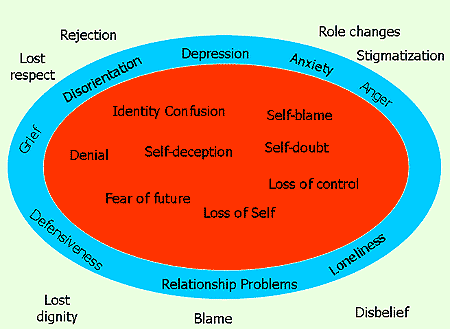Trouble communicating with spouse
How to Fix Communication Problems in Marriage
You can’t build a house without the foundation, right? That’s what communication is to a marriage: brick and mortar.
Most of us have had moments in marriage where we want to say something to our partner but we simply can’t find the words. Instead, we bury it, avoid the conversation, or even hope that our spouse can magically read our minds.
But if this hasn’t worked for you so far, it’s not surprising — and you’re not alone.
Relationships need real talk, even when it’s uncomfortable. The more you prioritize communication, the more it can help you and your spouse bond and strengthen as a unit.
Fixing communication problems in marriage can provide residual benefits in the household and other aspects of your lives as well.
Communication challenges happen for many reasons.
Positive communication may not have been modeled to you by your caregivers growing up, or your current relationship challenges may have left you more than a little tongue-tied.
Some possibilities include:
- breach of trust
- built-up resentment
- difficulty with vulnerability
- financial disagreements
- lack of time together
- insecure attachment style
- parenting conflicts
- unrealistic expectations
While each couple is different, there are common communication problems in marriage.
1. Talking and yelling ‘at’ them
Talking “at” someone often means you’re trying to be heard. Talking “with” someone, on the other hand, means you are trying to understand each other.
Yelling can make things even more complicated. Being yelled at activates the fight, flight, or freeze response and floods the body with stress hormones. When this happens, all nonessential systems shut down, like complex problem-solving ability.
It’s not that your spouse doesn’t want to understand you. From a biological perspective, as research shows, they literally can’t — at least not until things have calmed down.
You might try
- taking a 20-minute timeout until you’ve both calmed down
- moving your body to release pent-up tension and aggression
- writing down your main points briefly and reading the note to your spouse
2. Letting resentment and bitterness take root
Being bitter toward your spouse is like holding a heavy suitcase: You can do it with little consequence for 5 minutes, even an hour. But over the long term, the suitcase weighs you down and makes it hard to get anything else done.
A 2017 study involving 335 couples over 16 years of marriage found that while men are more likely to feel this kind of marital tension than women, the numbers indicate it’s typically women’s unhappiness that tends to lead to divorce.
Bitterness and resentment can also turn into contempt, one of the “Four Horsemen of the Apocalypse,” according to renowned marriage researcher John Gottman. This is when you start to look at your spouse unfavorably for who they are, rather than for what they do.
You might try
- avoiding building a “case” against your partner
- communicating your needs and complaints regularly
- separating your spouse’s actions from their character, such as “I feel hurt that the dishes weren’t done” versus “You’re a lazy slob”
- articulating why you feel grateful for your partner
3. Making plans and taking actions that are about me instead of we
When it comes to relationships, two halves don’t make a whole. It’s more accurate to say two “whole” people come together, each with separate interests and identities.
However, too much separation can spell trouble. When you or your partner start making plans or decisions without considering the other person, someone may feel like their needs aren’t being met.
Interdependence is a healthy compromise. According to a 2018 review of 30 studies, couples who refer to “we” instead of “me” function better and have happier relationships.
You can try to remember that the two of you are on the same side. It’s not you versus them — it’s you and them versus the challenge. It’s ideal to tackle the issues like a team.
It’s not you versus them — it’s you and them versus the challenge. It’s ideal to tackle the issues like a team.
You might try
- shifting the pronouns to “we” instead of “me” when talking about your relationship
- doing trust-building activities together, like rock climbing or couples yoga
- learning your spouse’s love language and sharing your own with them
Effective communication in marriage may not be intuitive for everyone. For many of us, it’s a skill set that takes some know-how. Here’s how to get started:
Process your feelings
You may find it helpful to take a moment and sort through your feelings ahead of time. This could look like:
- journaling stream of consciousness
- observing your thoughts in meditation
- practicing what you want to say in a mirror
- writing a “vent” letter (that you don’t send!)
Create a ‘container’
You can pick a time and a place, preferably when both of you won’t be rushed or distracted. From there, you might try this process:
From there, you might try this process:
- Put your phones on silent.
- Relax your body language to signal “openness.”
- Lay down some ground rules, like no interrupting or raising your voice.
- Set a timer for a previously agreed upon amount of time.
- Stick to the topic at hand — and only that topic.
- Avoid complaining and blaming.
- Use “I” statements (e.g., “I feel sad when I cook dinner and end up eating it alone”).
- While you’re silent, hone your active listening skills.
- When the timer goes off, reset it so the other person can speak.
Try psychotherapy
If your communication challenges stem from old relationship issues, like a breach of trust, you may personally find it helpful to speak with a compassionate professional who can help you work through it, so you can bring your mentally healthiest and whole self to the marriage.
Consider couples counseling
An objective third party, like a couples counselor, can help point out patterns and strengthen your bond with communication exercises.
Educational resources
According to a 2021 study involving 94 married women, learning communication skills can help reduce marriage burnout.
You may want to consider enrolling in a course, doing a couples workshop, or expanding your library on the subject.
Some useful books may include:
- “Love More, Fight Less” by Gina Senarighi, PhD
- “Questions for Couples” by Marcus and Ashley Kusi
- “Nonviolent Communication: A Language of Life” by Marshall B. Rosenberg, PhD
- “Crucial Conversations: Tools for Talking When Stakes Are High” by Kerry Patterson, Joseph Grenny, Ron McMillan, and Al Switzler
- “Now You’re Speaking My Language” by Gary Chapman
- “The 7 Principles of Making Marriage Work” by John M. Gottman, PhD, and Nan Silver
While not the sexiest topic, communication is arguably the most sacred part of a union.
Done correctly, it can smooth out relationship turbulence, improve emotional intimacy, and strengthen your bond for the long haul.
Improving your communication skills takes work, but it’s well worth it. If it’s difficult for the two of you to do on your own, consider working with a couples counselor.
As author and entrepreneur Tony Robbins says, “Do you want to be right, or do you want to be in love?”
We’d pick the latter.
10 Common Communication Breakdowns in Marriage
I write and speak about marriage for a living. It’s my job and it’s my ministry. So, what I’m about to say is hard, but I’m hoping it helps somebody. A few months ago, my wife and I were having a really tough time in our marriage. I’m talking tough to the point where we were questioning some of the things we teach, the things I’ve written about, and the things we speak about. We just couldn’t come to a resolution.
As your communication goes so goes your marriage. So, we called for help. We called on a couple who are our marriage mentors, and occasional crisis marriage counselors. After several text messages and a couple phone calls, the husband shared his thoughts about the problems we’d been having. It came down to this: We were terrible at communicating. And if we didn’t change it our marriage was going to continue to struggle. The same goes for your marriage. As your communication goes so goes your marriage. Here are 10 common communication breakdowns in marriage.
It came down to this: We were terrible at communicating. And if we didn’t change it our marriage was going to continue to struggle. The same goes for your marriage. As your communication goes so goes your marriage. Here are 10 common communication breakdowns in marriage.
1. Not really listening.
The biggest problem to communication is just not listening. Many of our communication problems would go away if we just intently listened to one another.
2. Speaking before thinking.
Guilty! I’m guilty! So many times I say things as a reaction, and those times it usually doesn’t go well. Take your time and think before speaking and responding to your wife.
3. Only talking about what you want to talk about.
I call this throwing up on her. Sometimes I just overload her with things I’m dealing with not caring to hear what she’s dealing with. Too many of those conversations and you might be calling your marriage mentors for help as well.
4. Raising your voice.

You can help yourself in this area when you think before speaking as mentioned above. You may need to take a breather to gather yourself, but raising your voice doesn’t serve you or your wife well.
5. Negative non-verbal communication.
Your non-verbal communication — facial expressions, gestures, etc — will impact your conversations as well. Maybe you didn’t say anything wrong, but you sure did say something wrong with your negative body language, which can be received worse.
6. Speaking in superlatives.
You always. You never. Every single time. Ever uttered those words? There are few things, if any, that your wife always does, never does, or does every single time. Using these words can be harmful to your marriage.
7. Degrading your spouse.
This should go without saying, but I’ll say it anyway. Never ever degrade your spouse. You should look to build her up, to encourage her, to love her as you love yourself. Degrading her has no place in your marriage. If your wife has trouble complimenting you through her communication, here are 10 she can use to build upon.
If your wife has trouble complimenting you through her communication, here are 10 she can use to build upon.
8. Playing the blame game.
If a miscommunication or a mistake is made don’t let your first instinct be blaming your wife (even if it is her fault.) The blame game or pointing fingers doesn’t work. You are one. That means you both have a joint responsibility in whatever happened. Talk through it together, find the learning opportunity for her and for you.
9. Seeking to be understood first rather than to understand.
Strive to know what she is thinking, what she is feeling, what she is dealing with. Before you try to get her to understand you, first understand her and her point of view. It just may change your point of view before you even share it.
10. Bringing up the past.
Do not keep score and do not bring up your past victories or your wife’s past losses (mistakes). There is no positive purpose in that. It is a losing strategy when it comes to communication in marriage.
Download the Q & U app to find questions to ask your wife today!
Sound off: What is your biggest barrier to great communication?
how to decide what to do to his wife
It is rare that a woman does not have problems in a relationship with a man. But knowing why problems with your husband appear gives you a better chance of successfully overcoming them. In this article, we will look at common problems that you can deal with.
What should you do if you notice problems in your relationship with your husband? For example, with his relatives, in bed or in his personal life? Don't ignore them and don't expect them to just disappear. You need to talk frankly, honestly, and respectfully with your husband and agree on how to get rid of these problems. This conversation can be difficult, but it is necessary.
Over the past few years, many letters have come to the site's inbox, in which women describe their problems and ask for help. With their consent, we will publish some of the letters and responses to them.
With their consent, we will publish some of the letters and responses to them.
Contents of the article
5 reasons why there are problems with my husband
I no longer love my husband, what should I do
Letter from Nina.
“How could I stop loving him after we've been through so much together? For the past seven years, I thought that we were together, like kindred spirits, but for some reason now I feel completely detached from him. I don’t even know where we went wrong, but I can’t find the feelings that I had for him before.
When I see him, I almost get annoyed by his presence and prefer to be alone. But when I'm alone, I remember how happy we used to be. So I'm at a crossroads and don't know where to turn. It seems to me that I do not love him anymore, he sees this and suffers silently.
Svetlana's letter.
“I don't know what to do because I'm not sure if I really love my husband. Ever since our baby was born, it has been very difficult. We never had easy times. I had health problems, and he had money problems, because of this we quarreled. Now the finances are much better, but we have become strangers.
We never had easy times. I had health problems, and he had money problems, because of this we quarreled. Now the finances are much better, but we have become strangers.
Every time he tries to kiss me, I want to pull away. He is a good person, but some kind of stranger. Should I try to solve this problem with my husband, or is it better to leave him? I'm just exhausted."
(By the way, husbands also provoke problems with their wives. I advise you to read 31 reasons why these problems arise).
Psychologist's response to Svetlana and Nina's letters
When problems arise in your relationship with your husband and you are confused about what to do, remember the following four truths:
First of all, life is too short to be in a relationship that you don't like. If something bothers you, tires, destroys, upsets, you should not dwell on it . But this does not mean that you just need to break off the relationship. All problems in a family with a husband are an opportunity to act, look for solutions, change, and not leave him.
Of course, it is up to you to decide whether to stay in a painful situation or leave. But I encourage you to take responsibility for what you can do. Try to work on your part of what you bring to the relationship.
If you treat your husband badly, change your role. You complain, cry, but passively wait for someone else to save you and change something. You can also make changes yourself. Not by breaking off relations, but by changing yourself and your attitude towards your husband. You need to talk to your husband. Tell him what is happening to you. Perhaps he does not see clearly everything that you feel or experience.
Second, if you don't solve certain problems now , then you will have to solve them later but with someone else. Many couples who end what they perceive to be an unsuccessful marriage, after some time in other respects , face the same problems as before. After several years of living in a new relationship, they suddenly realize that almost nothing has changed, except for the person with whom they live.
Third, statistically, "unhappy" couples who stay together are more likely to become "happy" within five years. Two-thirds of unhappy couples who didn't break up but kept their marriages were happy five years later. And those who divorced were, on average, no happier than those who stayed together. What is the conclusion? Time often has a positive effect on solving problems with a husband.
All this can help you get back together and strengthen your relationship. (See what else you can do to mend your relationship with your husband if it has gone bad.)
Problems in bed with her husband
Letter from Christina.
Hello! We are a young married couple, my husband is 28, I am 26 and we have problems with intimacy. I am a very emotional person and do not always control my emotions.
It all started during my pregnancy when I lost interest in sexual intimacy. Because of this, we often argued, and he cooled off towards me. After the birth of the child, I try to somehow fix everything, but it seems to no avail. My husband blames me for everything.”
My husband blames me for everything.”
Second letter from Valeria.
“My husband does not understand me. I take care of the children, the house all day, I feel like a caretaker and a cleaner. He does not invite me anywhere, does not say anything good, does not appreciate, and then wants sex. I tried to talk to my husband about these issues, but he doesn't want to discuss it."
Third letter from Victoria.
“My husband's problem is, in a way, health related. For about a year now, he has avoided intimate relationships with me. He says that he is very tired at work and he no longer has the strength. But nothing has changed even when he was on vacation.
For the last 5 months, I have struggled alone with the problem of my husband, who does nothing to solve it. I gave him an ultimatum - sexologist or divorce.
But my husband thinks there is no problem because he loves me. In general, he is gentle, loving and affectionate. Why is he behaving like this? What if he does not want to be treated and does not want to talk about it?
Psychologist's response to letters about problems in bed
People differ in the level of sexual needs, moreover, many factors affect the level of libido. Perhaps the reason is her husband's health: erectile dysfunction, depression, chronic stress? In addition, the behavior of the wife, extramarital affairs, and even watching pornography or cybersex can be a reason to avoid intimate relationships. And perhaps not the last role is played by the views or upbringing of the husband.
Perhaps the reason is her husband's health: erectile dysfunction, depression, chronic stress? In addition, the behavior of the wife, extramarital affairs, and even watching pornography or cybersex can be a reason to avoid intimate relationships. And perhaps not the last role is played by the views or upbringing of the husband.
It is difficult to guess possible reasons without knowing the husband's point of view.
- Therefore, first talk to your husband, ask what he thinks about it? As he sees what could be the reason, and then offer to deal with it together. Does he have any sexual needs at all? How would he like to implement them?
- Tell us about your needs and expectations. Look at what has changed in your relationship, what is causing those changes, and how you can find what once made you fall in love with each other. Learn to speak openly among yourself about your preferences, desires, agreeing on options for sexual relations that are acceptable to you.

- It is also worth talking about your doubts and conclusions. And never try to manipulate your husband, using sex as a method of influencing him.
- In addition, you should not completely give up the hope that you will still be able to visit a sexologist together and find out the reasons for your husband's unwillingness to have sex. You may also need the advice of a psychotherapist. But the husband must agree and be ready to solve these problems if he wants to save the marriage.
Psychologist's advice to husbands
Sex begins in the head. A woman whom a man was interested in in the morning, texted her romantically, invited her to dinner or had a romantic candlelight, will be more prone to intimacy than usual.
Moreover, there is one more thing that influences female attraction, besides a good atmosphere in the house. It's about personal development. A woman likes to admire her man, to be surprised at a good joke, to see his resourcefulness, ability to solve problems. At the same time, even a very hot and sexually loving wife will go cold living with a man who won't make a move unaided.
At the same time, even a very hot and sexually loving wife will go cold living with a man who won't make a move unaided.
When there is not enough sexual relations in a marriage and one party is unhappy with it, problems begin. Even love, commitment and the desire to be together may not be enough. Then it will happen, as in the well-known saying "that the wife will look for what she does not get in marriage - outside of marriage."
In the end, the "unfulfilled marital obligation" becomes a reason for breaking off the relationship. (I advise you to read 11 tips that will help you be a good husband to your wife).
Financial problems in relationship with husband
Letter from Tatyana
“At first everything was fine. We were both financially independent, professionally active people. I worked for myself, he had a steady job and a fixed monthly income. When we decided to live together, the question of earnings naturally arose.
It was necessary to somehow separate the costs of rent and cohabitation. He always earned a little more, but he didn't let me feel it. We lived like any young couple who started their journey together. It was nice. We dreamed of a family.
He always earned a little more, but he didn't let me feel it. We lived like any young couple who started their journey together. It was nice. We dreamed of a family.
I did not expect that after marriage and the birth of a child, everything would suddenly change. Being on maternity leave and taking care of the child and the house, I could no longer fulfill my orders. Therefore, we agreed that I take care of the house, and he earns. Meanwhile, his career began to develop. He changed jobs, wages went up.
And my personal savings eventually ran out, and I became financially dependent on my husband. I found myself in a situation where I had to ask my husband to give me money. He gave only for food and always with the same face: "Isn't it too much?"
Over time, my husband began to accuse me of not being able to save money and that all I needed was money. I am ashamed, but every month I ask my husband for money for pads or other essentials. And I don’t even dare to ask for cosmetics, because I’m afraid of his reaction.
When I think about it today, it seems impossible to me. I can't logically explain to myself how it happened? So I'm looking for at least some practical advice from others who may have encountered a similar problem.
How to force a man to give money - a psychologist's answer
According to the provisions of the Family Code of the Russian Federation (Article 89), both spouses are obliged to contribute to meeting the needs of the family that they created through their relationship. At the same time, this obligation should not be fulfilled "equally", but depending on the strength and financial and economic capabilities of each of the spouses. According to this article, a wife has the right:
- to demand money from her husband for her existence and the needs of the family, regardless of whether their marriage is registered or live in a civil marriage;
- if one of them (in this case the husband) refuses to do so, the wife can collect maintenance from him.

For more information, it is best to seek legal advice from a lawyer.
What else can be done?
- Keep a journal of expenses and show it to your husband with confirmation receipts so that he can personally see if you have enough money or not.
- Prepare meals with the foods your husband buys and keep a written record of what was used. And when the products run out, provide these records to your husband.
- Don't pay the bills yourself, let your husband do it. Then he himself will see how much money is needed for this.
Perhaps these measures will make the husband think about the absurdity of his behavior towards his wife.
It is also useful to establish clear rules regarding large financial purchases. Together with your husband, try to define what “big purchase” means? Determine a specific amount that you cannot go beyond without prior agreement with your spouse.
What is important for a wife to think about in order to avoid financial problems with her husband
Money plays a significant role in relationships today. Their absence or deficiency can create problems between husband and wife. Especially if your friends earn much more than your spouse.
Their absence or deficiency can create problems between husband and wife. Especially if your friends earn much more than your spouse.
Over time, you may feel frustrated by constantly whining or blaming your husband for not being able to make more money. You can start comparing him to other men who you think are more successful than him. It's a silly fact of life, but often a woman's happiness is highly dependent on how other people perceive them.
What should you do in such a situation?
- Reduce your appetite and learn how to save your family budget.
- If you're having trouble with how you are perceived by acquaintances or friends, then it's time to change your circle of acquaintances to see the difference in friendship.
Problems in communicating with her husband
Letter from Natalia.
“Hello, I am 38 years old, my husband is 42. We have been together for 17 years and during this time relations between us have ceased to develop, we often quarrel. How to talk to a husband who does not want to talk about it? I mean fights.
How to talk to a husband who does not want to talk about it? I mean fights.
In response to my requests for clarification, he keeps silent or says that I already know everything in advance and will do as I please. I won't listen to him anyway, and I have my own opinion. I am tired of this. It feels like I'm talking to a wall."
Psychologist's answer to Natalia's letter
To sum up what you wrote, your problem is that "you know very well what will happen in a moment." Instead of listening to each other, you immediately assume (based on previous experience) that the next moment the husband will say or do such and such.
By doing so, you do not give yourself room to maneuver - hence disappointment and family quarrels
. This can cause further communication problems.
- So try to start the conversation differently and speak in a different tone. Don't start by pointing out mistakes, but talk about something nice, and so on.
 Every day, "something new, something done differently". This will allow you to get a little distracted from the established routine of communication.
Every day, "something new, something done differently". This will allow you to get a little distracted from the established routine of communication. - Learn to communicate with each other. Try to arrange romantic evenings for each other. Try spending more time together outside the home, such as going on dates or just walking in the park. So you can communicate in a relaxed atmosphere.
- In addition, I recommend that you consult a psychologist together. It will show you the specific communication mistakes you are making. They don't let you communicate.
When a husband and wife do not communicate properly, they develop the habit of speaking rudely to each other. And if this is not dealt with, more serious problems can arise.
Reference
The words “talking” and “communication” are often used interchangeably, but it is important to understand that they are very different from each other.
Conversation is the giving of information without the need for dialogue. It has a lot of room for complaints and criticism. However, communication is a verbal and non-verbal exchange of information that requires dialogue. It focuses on connecting people so that you can safely and openly share your ideas and information without fear of judgment.
It has a lot of room for complaints and criticism. However, communication is a verbal and non-verbal exchange of information that requires dialogue. It focuses on connecting people so that you can safely and openly share your ideas and information without fear of judgment.
Problems with her husband in personal life
Bad habits lead to problems in personal life. In this case, the habits of the wife. Here are some of them.
Groundless jealousy and insecurity in her husband. For example, when a wife, having heard enough of her girlfriends, ascribes to a man all visible and invisible sins. She believes that he abandoned her, stopped loving, cheating. Therefore, he constantly requires a report from him: where was he and with whom?
How can I avoid this problem?
- Learn to trust your husband and listen less to your "girlfriends" with their assurances that all husbands cheat, without exception. Therefore, a woman should always look for confirmation of her suspicions.

- Don't let anyone or anything screw you over. If you call once and find out that he is late at work, trust him.
I advise you to read a few tips to stop being jealous of your husband.
Reproaches, not requests. Family problems with a husband arise if the wife reproaches him for talking or demands something, but does not ask. A man likes it more when he is told: “please do it, help, tell me”, and not “you are obliged, you promised”. When a man is asked for something, he is ready to help. But he loses the desire to do anything if he is reproached. Then he does everything out of spite.
How to deal with this habit?
Learn to ask your husband, showing your need for his help, attention and support. If necessary, gently remind, but do not “poke” a finger in his duties.
Learn to ask, not demand. The habit of flirting and flirting with other men. Some wives say they just wanted to annoy their husband, to check whether he is jealous or not. If he is jealous, then he loves. You know, it's like hanging yourself to make your husband cry. If she cries, it means she loves. Even if he cries, will it make the hanged woman feel better?
If he is jealous, then he loves. You know, it's like hanging yourself to make your husband cry. If she cries, it means she loves. Even if he cries, will it make the hanged woman feel better?
Flirting is similar. The husband will be jealous, but this will not make his wife feel better. One day it may all end in divorce.
What to do in this case?
To avoid this problem, forget about flirting, do not flirt, but develop an aversion to the very thought. Develop any aversion to flirting or flirting with other men. This is an opportunity to avoid conflicts.
Final thoughts
When we love, we usually cling to the closest person. Even when we feel bad. Harmony in a relationship with a husband begins when both parties want the same thing.
What if solving everyday problems is like a tug-of-war: who is right and who is wrong? Then the settlement of even the smallest conflicts becomes a "bloody battle". But the best alternative is the so-called "win-win waltz", when the problems of the family, the husband and wife decide together. This allows them to survive.
This allows them to survive.
This means that the problems that have arisen with the husband will, in most cases, be successfully resolved, and many problems will simply never arise.
And remember that there are always problems in a married couple's relationship. Many of them can be solved and generally avoided. To do this, fix as soon as possible what irritates or brings inconvenience to both of you.
URL copied
Communication in the family between husband and wife as a criterion of her life
The content of the article answers the following questions: communication between husband and wife - communication in the family disappears, a crisis of family relations sets in.
Or, in any case, there is a sharp deterioration in family relations.
That is, in fact, it is precisely the violation of communication between husband and wife. This is the root cause and source of problems in the family.
In other words, problems do not come after betrayal. Not after love has disappeared or dulled, not anything else, nothing else. These are all consequences.
Not after love has disappeared or dulled, not anything else, nothing else. These are all consequences.
And in the beginning it was: communication in the family ceased to be what it should be. Namely: it has ceased to be the source, connection and basis of normal relations between husband and wife.
Communication in the family between husband and wife incorporates all its diversity of types and forms. Like no other communication.
How does normal communication in the family disappear?
Moreover, like any crisis, the cessation of communication starts small, imperceptible.
Gradually, quickly or slowly, a lump of alienation grows between husband and wife. Everything - there is no common, no communication. For, "There is nothing to talk about."
Until recently, the closest (the closest) people become strangers. Those threads of family relationships that tied the couple into a family begin to break.
Unless, of course, they, thread-connections, existed before. But, in this case, if there were none, it is appropriate to ask: Was there a family at all?
But, in this case, if there were none, it is appropriate to ask: Was there a family at all?
After all, that love, that family relationships begin with a search for common interests, common goals, common desires... now and forever! Lovers, therefore, literally cannot tear themselves away from each other: they cannot communicate.
BUT, here, for someone, this common thing immediately turned out to be a house on the sand, built of illusions and self-deception.
And someone, having this in common, having lived for several years in this common, is surprised to find that this common is no longer there.
Literally: And there is nothing to talk about with the husband (wife).
Why? This is a separate topic and, maybe, not one.
But the fact remains: the external manifestation and the source of the collapse of family relations is the termination of communication in the family between husband and wife.
For example: it could be the gradual fading of sexual intercourse.
Or self-withdrawal from communication in the conduct of economic (financial) affairs of the family.
Or the cessation of communication about the discussion of family and non-family topics - the cessation of mutual understanding. And so on and so forth.
Termination of normal communication between husband and wife - the beginning of alienation from each other
Pay attention:
- starting in one area of family relations, the cessation of communication, quickly or slowly, covers all communication in the family between husband and wife.
The general is destroyed, the private, personal life of everyone begins. The status of husband and wife becomes purely formal. The family is fading and falling apart.
Here is the source of the problems of family life:
— Termination of that communication between husband and wife, which was originally when they tied their destinies.
Communication in the family does not stop: the family will continue to develop and prosper.
And yet, in short: Why is communication lost in the family?
Oh, yes, as always, as usual: from the stupidity of one or both. From the inability to understand neither oneself nor the other, neither one's own nor other people's interests.
At the same time, it does not matter whether both suffer from this or one.
The result is the same: the common thing that connected him and her into a family (or love relationship) disappears - communication in the family disappears.
People become strangers - each on his own.
Summary: there is communication in the family - there is a family. No communication, no family.
What do you think, ladies and gentlemen? What reasons do you see for the disappearance of communication between husband and wife?
More articles on this topic
The wife told her husband, the husband told his wife. What can not be said to the husband, wife?
Barriers in communication in the family - husband, wife do not understand
How to communicate with a husband, with a wife - how to improve relations with them?
The main thing in the family is the spiritual closeness of husband and wife
Scandals in the family.














